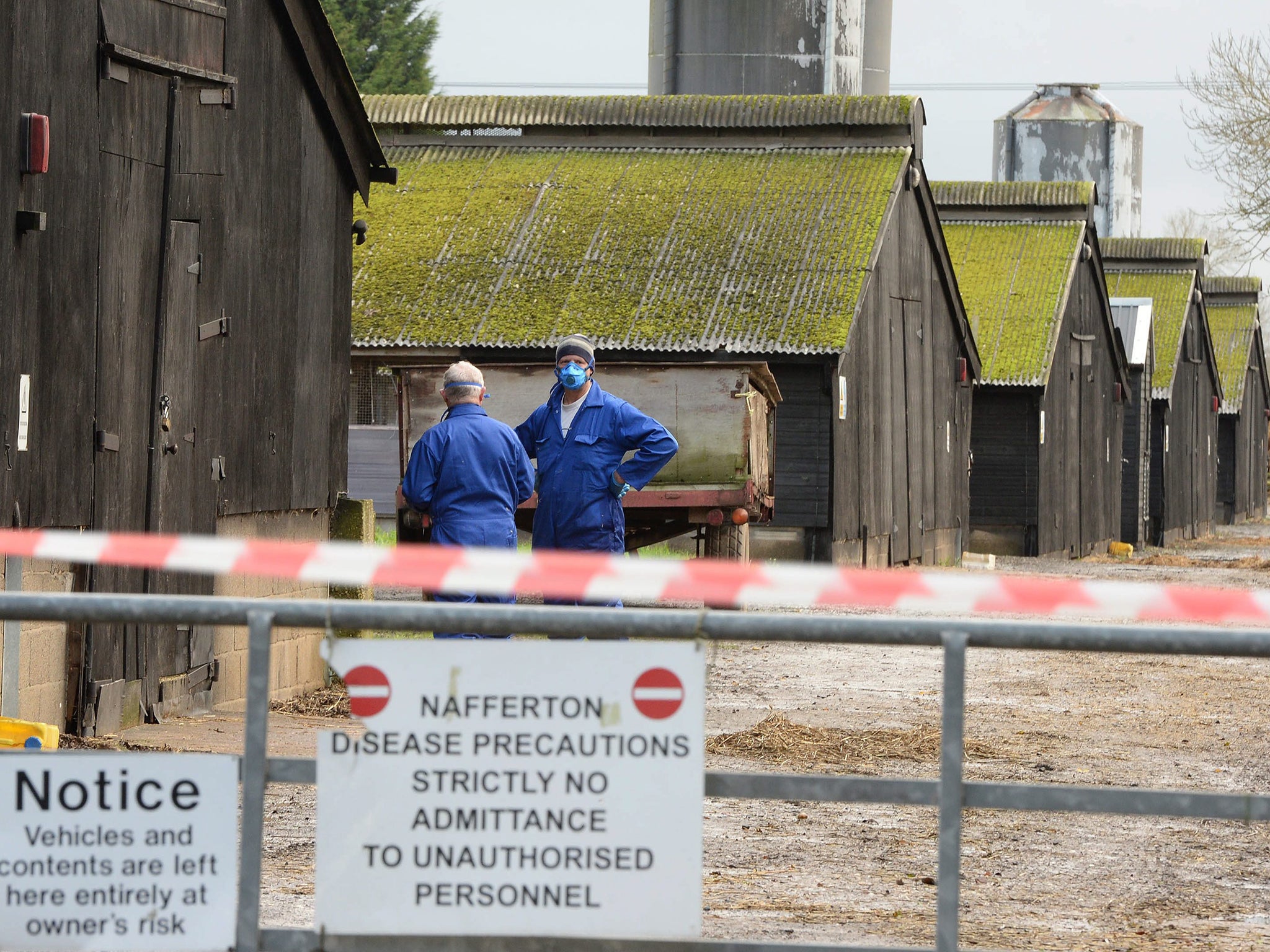Yorkshire bird flu outbreak: Wild birds 'at risk' after case identified on duck farm
However, the risk to public health is 'very low', says Defra

The UK’s wild bird population may be at risk following an outbreak of bird flu on a Yorkshire duck breeding farm.
The Department for Environment, Food & Rural Affairs (Defra) said today that it has confirmed at least one case of the virus at the farm – but officials told the BBC that it was not the deadly H5N1 strain.
A 10km restriction zone has been set up around the site and all poultry on the facility is to be culled in order to prevent any spread of infection.
While Defra has insisted the risk to public health is “very low”, Chief Veterinary Officer Nigel Gibbens has said the strain is “highly pathogenic to birds”.
He told the BBC that the main concern is safeguarding wild birds.
“What we know is their bio-security is good so this risk of spread from this farm is probably quite low,” he said.
“When we find this disease we take quick action to remove the birds as a possible source of further infection and we also restrict all the farms with birds in an area around it of 10km to look for possible further spread or possible other infected farms so we can get on top of those early as well.
“In parallel with that we'll be looking for other possible sources of the disease, including any links to the disease that we're seeing in the Netherlands and Germany, and that will include looking at the risk from wild bird spread to our national flock.
“From what we know so far we know this is a strain that is highly pathogenic to birds, so this is a disease of poultry.
In pictures: Yorkshire bird flu outbreak
Show all 7“The link to the disease that they found in Germany and the Netherlands is our most likely source and, on that basis, Public Health England has said with this strain there is not a risk to public health.
“The people dealing with the birds directly, that's the highest risk, and we'll be working to make sure that they're protected with proper hygiene precautions as they're handling the birds.
“The main focus is to protect our bird flock rather than any risk to public health.
“We cannot rule out that there might be further cases; this is why we put premises under restriction to look for further spread.
“Because there's a wild bird risk we also need farmers and their vets all over the country to be alert to possible disease in their farm that they can't explain, draw those to our attention so we can investigate quickly, and, if there is any more disease, seek to nip that in the bud as well.”
Bird flu, or avian flu, is an infectious viral illness that spreads among birds. In rare cases it can affect humans and two types have caused serious concern in recent years. These are the H5N1 and H7N9 viruses.
The outbreak comes after the Dutch government said on Sunday that it had found a highly contagious strain of bird flu at a chicken farm in the centre of the country.
All 150,000 birds at the farm in Hekendorp, 65 kilometres (40 miles) south of Amsterdam, were being slaughtered and The Netherlands imposed a 72-hour ban on transportation of poultry products, including birds, eggs, dung and used straw to and from poultry farms across the country, which is the world's leading egg exporter.
The strain, H5N8, has never been detected in humans, but an outbreak in South Korea meant millions of farm birds had to be slaughtered to contain the outbreak. Cases have also been reported in China and Japan, although the strain was first reported in Europe, on a German farm, in early November.
The European Commission said it expected to adopt urgent interim protective measures on Monday to contain the outbreak, including a ban on selling poultry products from the affected areas to EU and third countries.
”It's a highly pathogenic strain for birds,“ said Dutch Economics Ministry spokesman Jan van Diepen. ”For people it's not that dangerous: you'd only get it if you were in very close contact with the birds.“
The farm at Hekendorp sold eggs rather than poultry, another spokesman said.
Some 10,000 chickens were destroyed in March after bird flu was found at a farm in the eastern Dutch province of Gelderland, but the country has not had cases of any of the highly contagious H5 or H7 strains of bird flu in the past 10 years, according to data from the World Organisation for Animal Health.
Earlier outbreaks in Europe and Asia have infected humans, prompting fears of a bird flu epidemic.
In September, Russia reported the first cases of H5N1, another dangerous strain, in nearly two years.
Additional reporting by agencies
Subscribe to Independent Premium to bookmark this article
Want to bookmark your favourite articles and stories to read or reference later? Start your Independent Premium subscription today.

Join our commenting forum
Join thought-provoking conversations, follow other Independent readers and see their replies